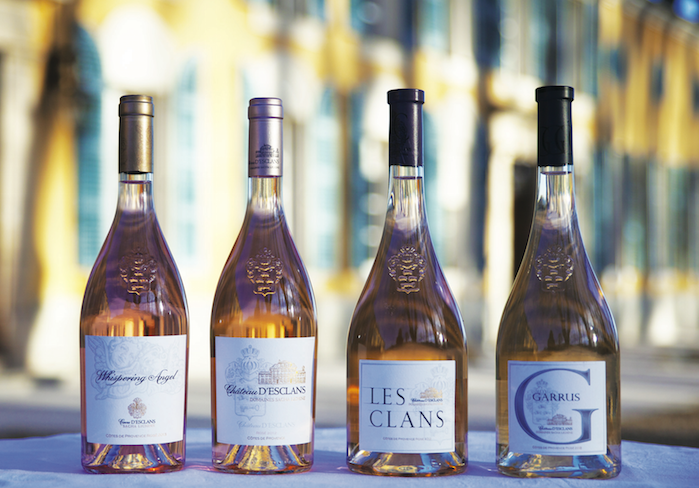Shaw Ross International Importers has remained busy in recent years, picking up a popular sake brand while also adding a premium wine division. Working with Chateau d’Esclans, the company has also overseen the explosive growth of Whispering Angel, a trendsetter among rosé brands.
I recently spoke with Shaw-Ross Managing Director Bruce Hunter about these and other developments at the company.
Beverage Dynamics: Why did you decide to enter into the sake market?
Bruce Hunter: In January of 2015 we were appointed the new exclusive importer of Gekkeikan sake, which sells half a million cases annually. And we’re diligently working our way into that market. A few years back Sidney Frank was changing the way they did business. They’d imported the brand for 26 years and then relinquished it. We were looking for new imports, so we inherited the brand. We’re really focused on maintaining sales of traditional sake in large centers and also focusing a lot on premium sake.

BD: How would you increase sake’s profile?
BH: We think that the future is teaching people that you can enjoy sake cold, in a wine glass, and that it pairs so well with food.
We actually took the unprecedented step of having our entire sales staff trained for the Level 1 Sake Award from the Wine & Spirit Education Trust. If I could be honest, I don’t think that people fully understand the idiosyncrasies of sake. So we decided to fully train our staff so that they have more knowledge of the product.
You can’t sell something that you don’t know how to talk about. And sake is not like selling wine or spirits. Consumers have limited knowledge about it. People have incorrect assumptions. They think that you can only drink sake warm and out of little cups. Which is not true. We’re trying to dispel that by showing that sake is very wine-like.
BD: How specifically would you say sake is like wine?
BH: Its flavor profile lends itself to occasions when you would drink light wine. And sake has different flavor profiles depending on how the raw rice is milled. Like anything, the more you learn about it, the more you can enjoy it. And you can really pair sake with food like wine – it’s not just for sushi.
 BD: What other food does sake pair with?
BD: What other food does sake pair with?
BH: An array of foods. Fish, for instance, or lobster in a cream sauce. There are sakes with a lot of body that can cut through that intense flavor profile of lobster. And it’s delicate enough to have with sautéed or grilled fish, or shrimp.
If you’re having a pork loin or roast, sake has the flavor to go with that as well.
BD: Where are the largest sake markets?
BH: Right now I think it’s just certain metro areas. But we’ve noticed that the 25-to-35-year-old has a really keen interest in sake. That began with their interest in sushi, which led to sake, and now they’re discovering the different ways they can use sake beyond sushi.
BD: What’s behind the rise of Whispering Angel?
BH: We partnered with Sasha Lichine [propietor of Chateau d’Esclans] about six or seven years ago when he was doing about 3,500 cases a year of his rosé. Last year the brand did 200,000 cases, and this year it’s projected for 300,000.
For the longest time people were really hesitant about rosé. They thought the wine was neither fish nor foul. And some younger drinkers thought it was white zinfandel.
We did a lot of metro tastings. We did a lot of marketing in the Hamptons. There are a lot of trendsetters there. And then it started to make the transition throughout New York and Connecticut, and ultimately proved successful.
Whispering Angel is light and easy to drink, whether at cocktail hour or with meals. We’re finding that rosé drinkers are 50/50 men and women. There are now four different rosé expressions from Chateau d’Esclans, including Garrus, which retails for around $100. Who thought you could sell a $100 bottle of rosé! And yet they always sell out.
Kyle Swartz is managing editor of Beverage Dynamics magazine. Reach him at kswartz@epgmediallc.com or on Twitter @kswartzz. Read his recent piece 5 Alcohol Trends At Taste NY Craft Expo 2017.




